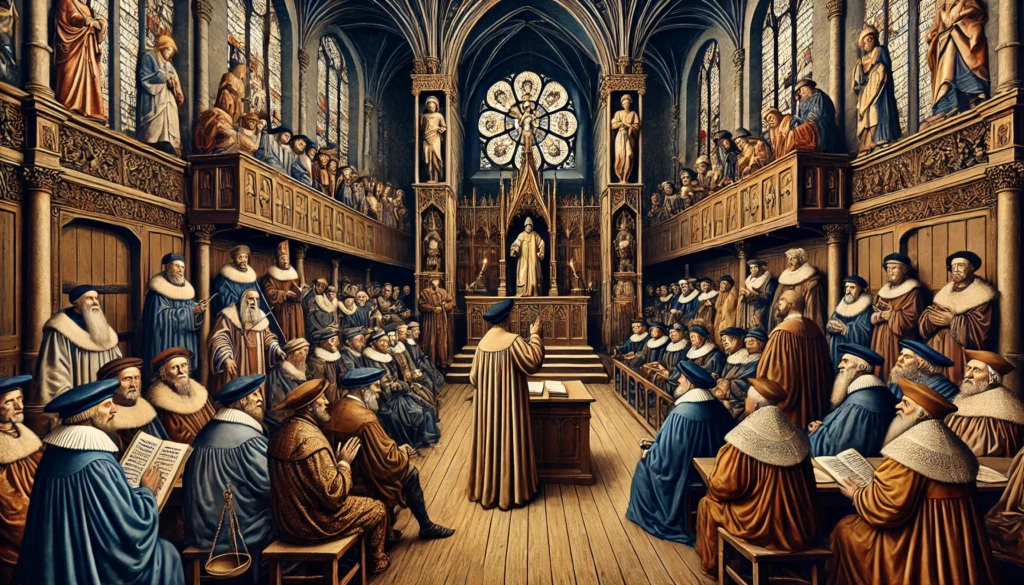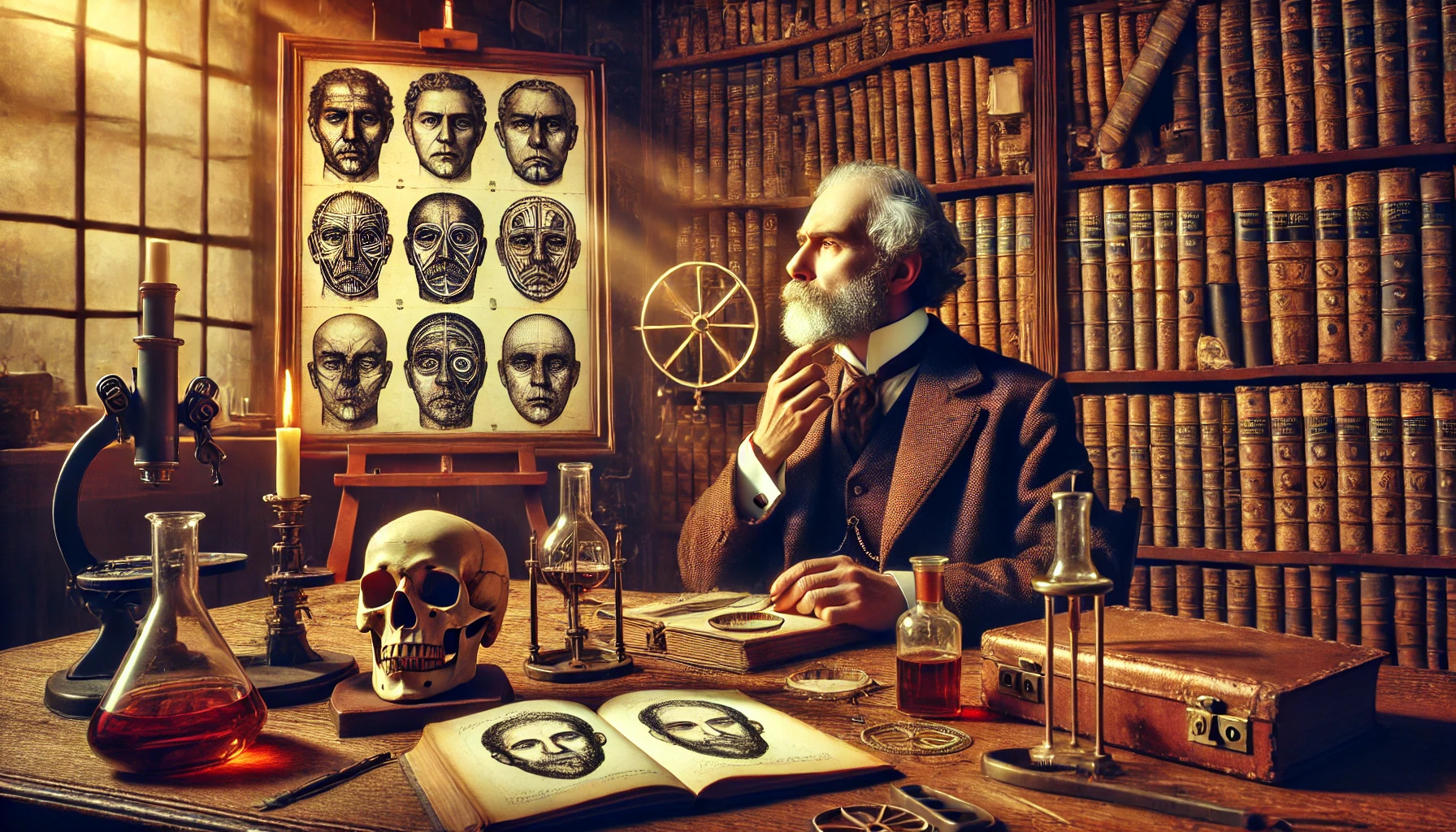The study of crime and criminal behavior has long intrigued philosophers, theologians, and early scientists. Before the emergence of the positivist school in the 19th century, interpretations of criminal behavior were shaped by religious doctrines, philosophical inquiries, and nascent scientific approaches. These interpretations laid the groundwork for the evolution of criminology as a distinct field. Understanding these early perspectives is essential to appreciate how criminology transitioned from abstract, moralistic theories to a structured, empirical discipline.
This article explores the early scientific interpretations of crime before the positivist school, examining their philosophical, theological, and early scientific roots.
1. The Philosophical Foundations
1.1. Early Philosophical Approaches to Crime
Philosophical inquiries into human behavior and morality form the earliest recorded attempts to understand crime. Ancient Greek philosophers like Socrates, Plato, and Aristotle explored the relationship between individual morality and societal order. For example:
- Socrates emphasized personal ethics and the importance of self-knowledge, suggesting that ignorance led individuals to commit wrongful acts.
- Plato proposed that crime resulted from a lack of harmony between reason, spirit, and desire—the three components of the human soul. He believed that a just society could minimize crime by nurturing virtuous citizens.
- Aristotle focused on the concept of justice, highlighting that imbalances in equity and fairness within a society often drove individuals to criminal behavior.
These early ideas linked criminality to broader philosophical questions about human nature, governance, and morality.
1.2. Natural Law Theory
Natural law theory, rooted in ancient Greek and Roman thought, played a significant role in shaping early interpretations of crime. This theory posited that moral principles, derived from nature and reason, should govern human behavior. Roman thinkers like Cicero emphasized the universality of natural law, arguing that crimes were acts against the natural order. During the medieval period, thinkers like Thomas Aquinas integrated natural law with Christian theology, describing crime as a violation of divine and natural law.
2. Religious Interpretations of Crime
2.1. Theological Views on Criminal Behavior
Religion profoundly influenced early interpretations of crime, particularly during the medieval era. Crimes were often viewed as sins, acts of disobedience against divine authority. The Church played a central role in defining and punishing criminal behavior, with its doctrines shaping societal norms and legal systems.
2.2. Sin and Criminality
Theological perspectives emphasized the inherent sinful nature of humans. Augustine of Hippo, for instance, attributed criminal behavior to original sin and the corruption of human will. This view reinforced the idea that divine intervention and moral guidance were necessary to curb criminal tendencies.
The Church’s influence extended to legal frameworks, with ecclesiastical courts overseeing cases that blended moral and legal transgressions. Punishments often aimed at spiritual redemption, such as penance or excommunication.
3. Pre-Positivist Scientific Approaches
3.1. The Enlightenment Era and Rationalism
The Enlightenment marked a shift from theological to rational interpretations of crime. Thinkers like John Locke, Thomas Hobbes, and Jean-Jacques Rousseau introduced ideas that emphasized reason, individual rights, and social contracts.
- John Locke argued that humans were born as blank slates, and their environment shaped their behavior. He believed that crime could be mitigated through education and societal reforms.
- Thomas Hobbes viewed crime as a natural consequence of humanity’s self-interest in the absence of a strong governing authority. His theory highlighted the importance of a social contract to maintain order.
- Jean-Jacques Rousseau contended that societal inequalities and corruption led to criminal behavior, emphasizing the role of social structures in shaping morality.
3.2. Early Psychological Interpretations
Nascent psychological theories began to explore the relationship between mental processes and criminal behavior. Johann Kaspar Lavater, a Swiss scholar, advanced the study of physiognomy—the idea that facial features reflected moral character. Although these theories were speculative and lacked empirical support, they marked the beginning of attempts to link physical and psychological traits to criminality.

4. The Influence of Early Biological Theories
4.1. Phrenology and Physiognomy
In the late 18th and early 19th centuries, phrenology and physiognomy gained popularity as methods to study criminal tendencies.
- Phrenology, developed by Franz Joseph Gall, claimed that the shape and size of the skull could reveal personality traits, including a predisposition to crime.
- Physiognomy focused on facial features and their supposed correlation with moral character. These ideas were widely criticized for their lack of scientific validity but influenced later criminological studies.
4.2. Environmental Determinism
The notion that environmental factors influenced criminal behavior gained traction during this period. Early thinkers argued that poverty, lack of education, and social inequality were significant contributors to crime. These ideas laid the groundwork for sociological approaches to criminology in later years.
5. Legal and Penal Systems Before Positivism
5.1. Classical School Foundations
The classical school of criminology, led by figures like Cesare Beccaria and Jeremy Bentham, emerged as a response to the arbitrary and harsh punishments of earlier periods. Key principles of the classical school included:
- Rational choice theory, which posited that individuals committed crimes after weighing the costs and benefits.
- Emphasis on deterrence and proportionality in punishment.
Beccaria’s seminal work, On Crimes and Punishments (1764), argued for clear laws and fair, consistent punishments. Bentham’s utilitarian philosophy further reinforced the need for rational legal systems that aimed to maximize societal happiness.
5.2. Early Reform Movements
Reformers sought to humanize the penal system by advocating for rehabilitation over retribution. These movements emphasized:
- The moral responsibility of individuals.
- The potential for education and reform to prevent crime.
6. Transition to Positivist Thought
6.1. Limitations of Pre-Positivist Approaches
While early interpretations of crime laid important theoretical foundations, they often lacked empirical evidence. The speculative nature of theories like physiognomy and phrenology, combined with the rigidity of classical legal systems, highlighted the need for a more scientific approach to studying criminal behavior.
6.2. Emergence of Positivist Ideals
The positivist school, spearheaded by figures like Cesare Lombroso, marked a departure from philosophical and moralistic theories. Positivism emphasized:
- The use of empirical methods to study crime.
- A focus on biological, psychological, and social determinants of criminal behavior.
These developments were heavily influenced by earlier ideas, demonstrating the importance of pre-positivist interpretations in shaping modern criminology.
Conclusion
The early scientific interpretations of crime before the positivist school reflect humanity’s enduring quest to understand deviant behavior. From philosophical inquiries and theological doctrines to speculative scientific theories, these perspectives laid the groundwork for the empirical study of crime. While many of these early ideas were flawed or incomplete, they contributed to the rich tapestry of criminological thought, ultimately paving the way for the positivist revolution. Recognizing their significance allows us to appreciate the evolution of criminology as a discipline and its continuing efforts to address the complexities of criminal behavior in contemporary society.

